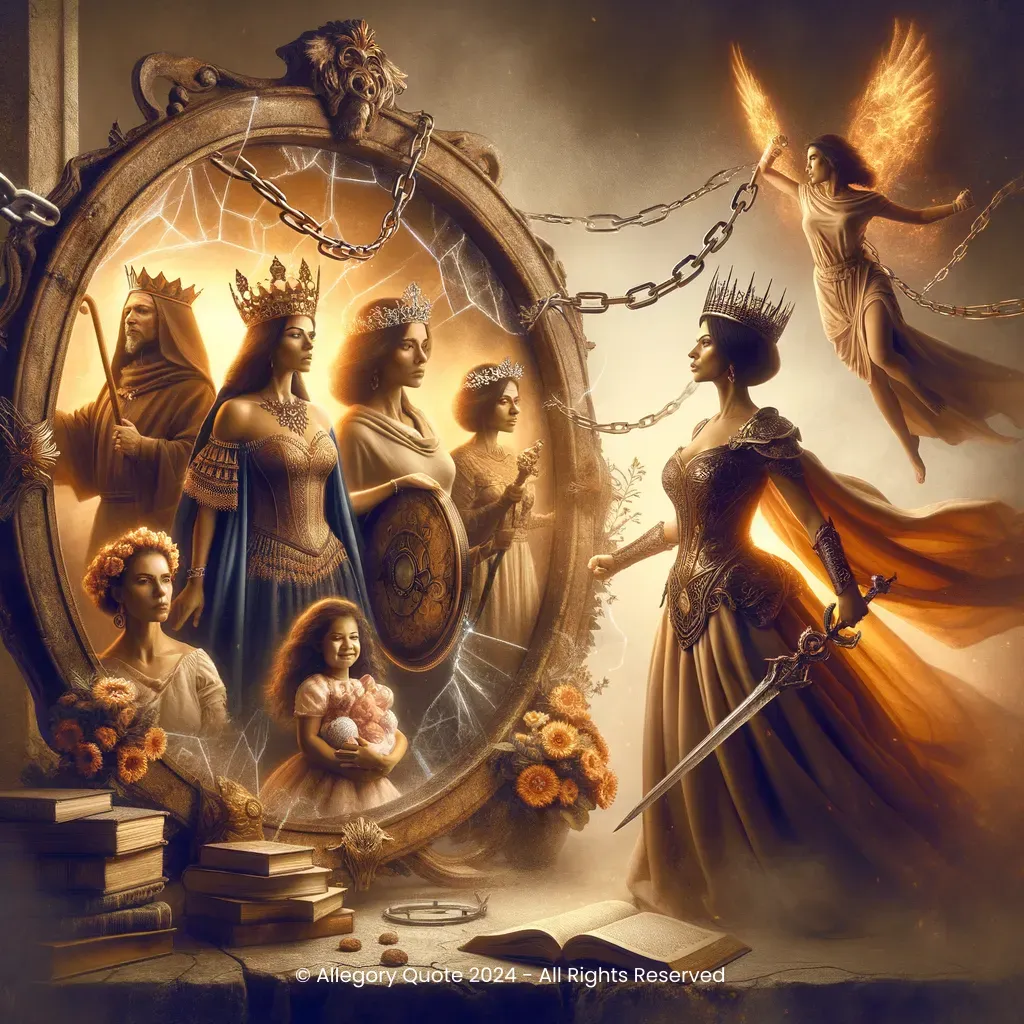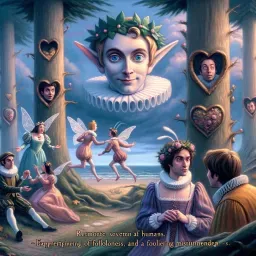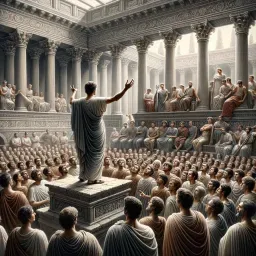Frailty, thy name is woman!

0
0
0
0
- Meaning
- This phrase suggests that women are inherently weak or frail. In the context of "Hamlet," Hamlet uses this line to criticize his mother, Gertrude, whom he perceives as morally weak for quickly remarrying following the death of his father. On a broader level, this reflects Hamlet's general disillusionment with women and their perceived lack of steadfastness and moral integrity.
- Allegory
- In this allegorical image, the woman represents the complexity and strength of womanhood, standing resolutely in front of an ancient, cracked mirror. The mirror's fragmentation symbolizes the varied and often conflicting roles and societal expectations imposed on women. The regal attire and crown acknowledge the historical significance of the stereotype depicted in Shakespeare's "Hamlet." The ethereal chains signify societal constraints that traditionally labeled women as frail, yet these chains are breaking, symbolizing the ongoing liberation and empowerment of women. The light that spills over her figure highlights her intrinsic strength and the multifaceted nature of her identity. The blend of historical and modern elements in the background underscores the continuity and evolution of the struggle against gender stereotypes, emphasizing a message of hope, resilience, and empowerment.
- Applicability
- The phrase can be examined from a contemporary standpoint to discuss gender stereotypes and biases that have persisted through history. For personal application, it can serve as a starting point to reflect on assumptions about gender and to challenge these outdated notions, promoting a more egalitarian and nuanced view of human character.
- Impact
- The phrase has had a considerable impact on both literary and cultural discussions, frequently cited in critiques of gender representations in literature. It has often been used to examine the perceived weaknesses attributed to women and to explore Shakespeare's views on gender, sparking debates about misogyny in his works.
- Historical Context
- The phrase originates from the Elizabethan era, during the early 17th century, when Shakespeare's "Hamlet" was written and performed. This period was marked by rigid gender roles and societal expectations that often confined women to domestic spheres, reinforcing perceptions of their frailty and dependence.
- Criticisms
- The phrase has sparked criticism for its apparent misogynistic tone, suggesting that it casts all women in a negative light. Modern feminist readings of "Hamlet" critique this line for perpetuating harmful gender stereotypes, and argue for a more contextualized understanding of Gertrude's actions and character.
- Variations
- There aren’t notable variations of the phrase itself, but interpretations do vary depending on the cultural and temporal context. Modern interpretations often criticize the phrase for its misogynistic undertones, while some contemporary feminist scholars re-evaluate Gertrude's actions as rational and strategic within the constraints of her society.
-

The golden age is before us, not behind us.
-

But, for my own part, it was Greek to me.
-

Get thee to a nunnery.
-

All that glisters is not gold.
-

My tongue will tell the anger of my heart, or else my heart concealing it will break.
-

Brevity is the soul of wit.
-

Lord, what fools these mortals be!
-

Friends, Romans, countrymen, lend me your ears.
-

The better part of valor is discretion.
-

O brave new world, that has such people in't!
-

Double, double toil and trouble; fire burn and cauldron bubble.
-

Out, out brief candle!
No Comments